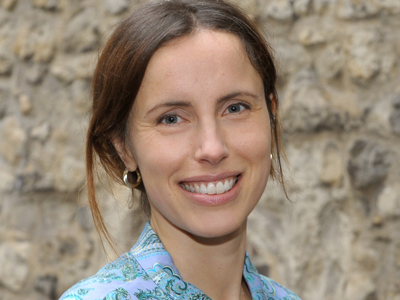
Judicial review hearing of changes to Croydon Borough Council Council Tax Reduction scheme
Blind self-employed Dr Yusuf Ali Osman will have a judicial review hearing on Wednesday 22 March of the changes made by Croydon Borough Council to its Council Tax Reduction Scheme (CTR) in 2022.
Posted on 21 March 2023
The changes left some pensioners, some disabled people, some carers, some students and some foster parents facing council tax bills when in the years before 2022 they would have been exempt.

Dr Osman aged 44, of Croydon, pictured, claims the discriminatory changes are a result of Croydon Borough Council applying the Minimum Income Floor (MIF) to people who are protected from the MIF under Universal Credit (UC) regulations.
The MIF in UC applies only to people required to be in, or looking for, full time work but the Croydon MIF omits that component and includes categories of residents who are exempt from MIF under the UC scheme.
The MIF assumes self-employed people have a weekly income of £332.50 (minus tax and NI) but some groups of people are exempted in UC because they are in reality unable to achieve this level of income. Applying the MIF means that their council tax liability is not reduced in line with their actual income.
Dr Osman claims the 2022 CTR scheme initially discriminated against him as a self-employed resident with a significant disability, and initially left him facing a council tax bill of hundreds of pounds when in the past he had been exempt. The 2022 MIF was applied to people like Dr Osman who are self-employed but because of disability are unable to work full time: people with limited capability for work or work-related activity (ie. cannot work because of disability or illness).
Croydon’s CTR Scheme also ceases to disregard the disability-related income of people on means tested benefits meaning that they are effectively paying money meant for their disability on council tax.
Only after Dr Osman launched a legal challenge to the council’s new rules about the MIF and disability related income in its 2022 Scheme did Croydon Council decide to exempt him from council tax. It has also just this month removed the MIF category that affected him, as a disabled resident, with the result that Dr Osman will not have to pay council tax in 2023.
The changes on 1 March are for the 2023 scheme and free disabled people from the discriminatory provisions, but the scheme still affects other people who are not expected to be in full time work.
Croydon Council says the legal claim is now academic because it has changed its CTR Scheme, but Dr Osman is persevering because he argues that although the latest rule change benefits him, other vulnerable Croydon residents are still left facing council tax bills.
They include people who care for people with disabilities or under-threes, pensioners with a working-age partner, recent adopters, many students and many foster parents. The Croydon CTR scheme does contain a partial exemption for lone parents, whose minimum income floor is set at the equivalent of 20 not 35 hours per week.
Further, while the Scheme disregards some disability related income it still does not disregard other disability related component of ESA.
Dr Yusuf Osman said:
“Croydon Council only specifically provided an exemption from the MIF for self-employed disabled residents after I launched a legal action and it is still failing to acknowledge the mistakes it has made.
“I feel strongly that Croydon should acknowledge that it has not introduced the MIF in line with the UC regulations and that it has not continued to disregard all disability related income. Its 2022 Scheme did neither of these things, and none of the documents relating to the 2023 Scheme indicate that the Council has acknowledged these two fundamental issues.”
Dr Osman is represented by Leigh Day solicitor Kate Egerton, who said:
“Dr Osman will make the core argument that Croydon Council misdirected itself in 2022 by believing its MIF would be ‘applied in line with Universal Credit’ while in reality its MIF is not aligned with UC (and, resultingly, has discriminatory and irrational effects) in that it omits the UC exemptions.
“The 2023 changes still do not replicate the UC exemptions and the Council continues to fail to acknowledge this. While the changes mean that disabled self-employed people now escape the MIF, they do not assist others who under UC would be exempted, for example carers, or people with young children. Further, we understand that there are other local authorities who may also have failed to exempt people with limited capability for work from the MIF; we therefore hope that a positive result in this case will have an impact both in Croydon and nationally.”

DWP system of corresponding with blind benefits claimants will be challenged in High Court
A blind self-employed worker will challenge the Department of Work and Pensions (DWP) in the High Court over its persistent failure to communicate with him in a way that he can access.

Severely disabled benefits claimants call on DWP to compensate thousands who have been unlawfully short changed in benefit payments
Following a conclusive and robust ruling from the Court of Appeal two severely disabled men known as TP and AR have called on the Department of Work and Pensions (DWP) to compensate up to 50,000 vulnerable benefits claimants who have been unlawfully stripped of benefits worth thousands of pounds.


